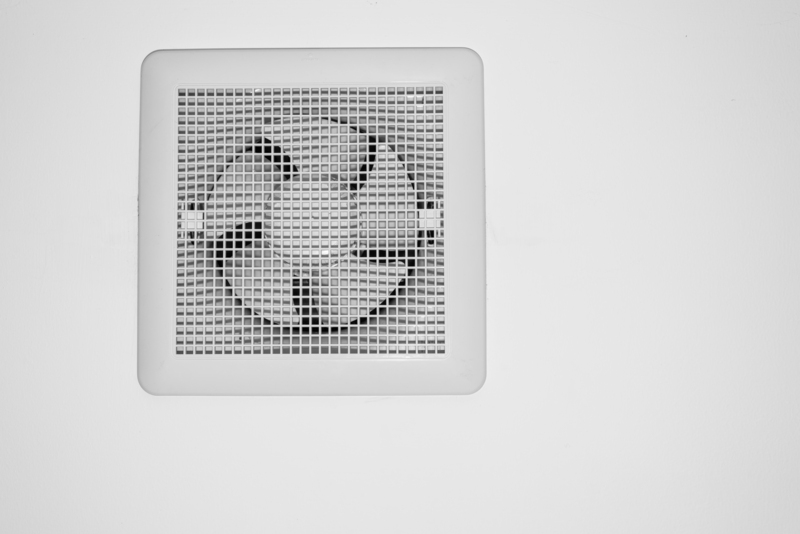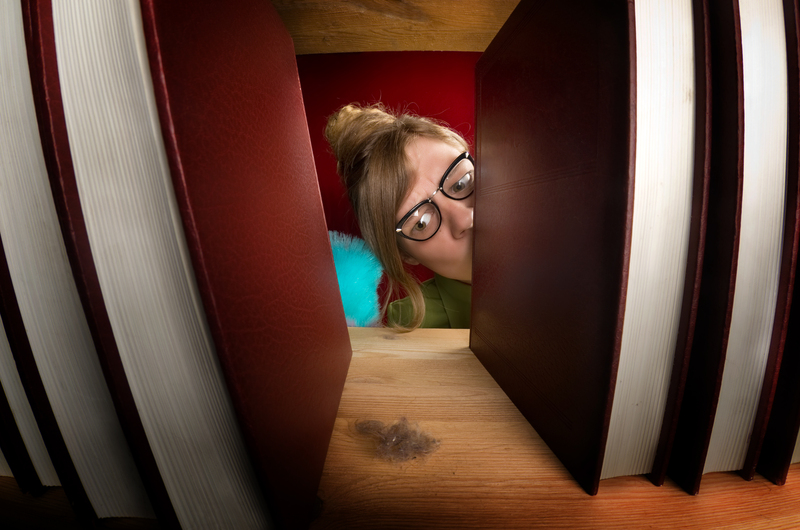Spruce Up Your Space with Expert Curtain Cleaning Advice
Posted on 18/09/2025
Spruce Up Your Space with Expert Curtain Cleaning Advice
Refreshing your home doesn't always require a costly renovation or major overhaul. Sometimes, all it takes is ensuring your curtains are clean and vibrant to breathe new life into your space. Discover our comprehensive curtain cleaning tips straight from the experts--guaranteed to transform the ambiance of any room.
Why Clean Curtains Matter in Home Decor
Your curtains act as more than just decor. They filter sunlight, offer privacy, and trap dust, allergens, and odors over time. Neglecting routine curtain cleaning can lead to:
- Allergy build-up: Dust, pollen, and pet hair accumulate, aggravating allergies and asthma.
- Unpleasant smells: Curtains absorb cooking odors, smoke, and dampness, which can linger for months.
- Fading and material deterioration: Dirt particles weaken fabric fibers, hastening wear and discoloration.
Expert curtain cleaning advice doesn't just protect your investment--it actively enhances the look and feel of your home environment.

Understanding Different Curtain Fabrics
Not all curtains are created equal. The method you choose for cleaning your curtains should be dictated by the fabric. Common types include:
- Cotton: Durable, mostly machine-washable.
- Linen: Requires gentle handling and cool water washing.
- Silk: Luxurious but delicate, best suited to professional or hand cleaning.
- Velvet: Needs special care; often dry-clean only.
- Synthetic Blends (Polyester, Acrylic): Generally low-maintenance and machine-washable.
- Sheer: Extremely delicate, often needing hand washing.
Always check the manufacturer's label before starting any curtain washing routine. When in doubt, consult a professional curtain cleaner.
Essential Curtain Cleaning Methods: Detailed Guide
Boost the air quality and aesthetics of your rooms by selecting the right curtain cleaning method for your fabrics:
1. Regular Curtain Maintenance
- Vacuum Weekly: Using your vacuum's upholstery attachment, remove dust and pests before they settle in. Don't forget the curtain tops, folds, and behind furniture!
- Shake Out Dust: Every month, lightly shake curtains outdoors to release dust and hair.
- Spot Clean Stains: Use a soft cloth with mild detergent to dab away small marks. Always test on an inconspicuous area first.
2. Machine Washing Curtains
- Remove hooks and rings to prevent snags.
- Use a gentle cycle and cold water; hot water may shrink or damage fabric.
- Wash curtains separately to avoid color transfer.
- Air dry whenever possible to prevent shrinking or wrinkling.
Tip: Adding a cup of distilled white vinegar during the rinse cycle cuts through odor and softens fabric naturally.
3. Hand Washing Delicate Curtains
- Fill a tub or sink with tepid water and add a mild detergent.
- Soak and swish gently. Never wring out delicate materials like silk or sheers.
- Rinse thoroughly to remove all soap residue.
- Lay flat on a dry towel or hang in shade to dry. Avoid direct sunlight which can cause fading.
4. Steam Cleaning Curtains
- Use a handheld steam cleaner to break down stubborn grime while refreshing the curtain's appearance.
- Start from top to bottom, moving in a slow, downward motion.
- Test steam on a hidden corner to ensure colorfastness and fabric tolerance.
5. Dry-Clean Only Curtains
- Take to a reputable dry cleaner familiar with drapery fabrics.
- Point out stains or problem areas for the best professional results.
How Often Should You Clean Your Curtains?
To maintain a fresh, inviting atmosphere, follow this expert cleaning schedule:
- Vacuum and dust: Every week
- Deep clean: Every 6 months
- Spot clean: As immediate stains appear
- More frequent cleaning: If exposed to smoke, pets, or heavy pollution
Your local environment plays a major role. In urban or high-pollen areas, curtain washing may need to be more frequent to keep your home healthy and clean.
Expert Curtain Cleaning Advice for Stubborn Stains
Ink, wine, or grease splatters call for specialized curtain cleaning techniques:
- Food or Drink: Gently dab with a clean, damp cloth. For persistent stains, use a mild, non-bleaching cleanser.
- Mold or Mildew: Sunlight is an effective natural bleach. For heavy spots, soak in water and vinegar before laundering.
- Oil or Grease: Sprinkle cornstarch or baking soda on the mark to absorb grease, then vacuum and wash as usual.
- Ink: Dilute rubbing alcohol on a cotton pad and lightly dab (not rub) until the stain fades.
Note: Always spot-test any solution on a small, hidden area to protect your curtain's fabric and color.
DIY Natural Solutions for Eco-Friendly Curtain Cleaning
Professional curtain cleaning is great, but you can also achieve sparkling results with eco-friendly options:
- White Vinegar: Acts as a deodorizer and disinfectant. Add it to the rinse cycle or spray lightly onto curtains.
- Baking Soda: Neutralizes odors and softens fibers. Use as a pre-soak for particularly musty curtains.
- Lemon Juice: Removes mild stains and brightens whites, perfect for sheer or light fabrics.
Pro Tip: Regular airing and sunlight exposure naturally freshen curtains--just avoid prolonged direct sunlight to prevent colors from fading.
Professional Vs. DIY Curtain Cleaning: Which Should You Choose?
Some curtains, like heavy velvet drapes with linings or embroidered silks, are best left to professional curtain cleaners to avoid shrinkage, warping, or discoloration. However, routine dusting, vacuuming, and spot cleaning are effective DIY maintenance steps for most modern, machine-washable fabric curtains.
Benefits of Professional Curtain Cleaners
- Specialized Knowledge: Trained experts know which detergents, solvents, and techniques suit each fabric type.
- Advanced Equipment: Professional machines reach deep into heavy drapery layers for a thorough clean.
- Stain Removal: Persistent or complex stains are more efficiently handled.
- Fabric Preservation: Reduces risk of shrinking, tearing, or color bleeding.
Advantages of DIY Curtain Cleaning
- Cost-effective: Saves money on fees and transport.
- Convenience: Clean on your own schedule.
- Control: Choose eco-friendly products and techniques.
A balanced approach--regular at-home care, plus a yearly pro curtain clean--is the secret to keeping your window dressings gorgeous and hygienic.
Effective Drying and Ironing Tips for Curtains
Proper drying and pressing prevent wrinkles and ensure your curtains hang elegantly:
- Air dry on a clothesline: Hang equally to avoid stretching. For sheers, sandwich them between towels and lay flat.
- Avoid tumble drying: This can damage delicate fibers or cause shrinkage.
- Iron while slightly damp: Use the lowest heat for synthetics and higher settings for cotton or linen. A garment steamer works well for touch-ups after hanging.
Hang curtains back immediately after ironing or steaming--they'll finish drying to a crisp, neat appearance.
Expert Curtain Cleaning Advice for Allergy Sufferers
If allergies are a concern in your home, following curtain cleaning best practices is critical:
- Choose washable, hypoallergenic fabrics easy to maintain, such as cotton or synthetic blends.
- Use fragrance-free, hypoallergenic detergents to reduce potential irritants.
- Vacuum and air curtains weekly, especially during allergy seasons.
- Consider replacing dense or floor-length drapery with lighter, washable panels for easier cleaning.

FAQs: Common Curtain Cleaning Queries Answered
How do I know if my curtains are machine washable?
Check the care tag sewn onto the curtain or panel. When in doubt, test a small area or consult a professional.
Can I put curtains in the dryer?
Generally, it's best to air dry curtains to avoid shrinking or damaging the fabric--especially for delicate materials. If using a dryer, select the lowest heat setting and remove promptly to prevent wrinkles.
Do blackout curtains need special cleaning?
Yes. Blackout linings can degrade if submerged in water. Vacuum regularly and spot clean. Some types can be steam cleaned, but always check the manufacturer's recommendations first.
What's the quickest way to deodorize curtains?
Lightly mist a mixture of water and white vinegar (1:1 ratio) and allow to air dry. Hanging curtains in sunlight also helps eliminate odors naturally.
Conclusion: Freshen Up Your Home with Expert Curtain Cleaning Advice
By following this in-depth guide to curtain cleaning, you can enjoy a fresher, healthier, and more stylish space--all without expensive purchases or renovations. Whether you're tackling dust, stains, or lingering odors, these expert-approved tips will give your curtains, and your home, a new lease on life.
- Remember: Fabric matters--always check labels and use the right cleaning methods.
- Weekly maintenance prevents deep-set grime and keeps allergies at bay.
- Consider professional cleaning for delicate, large, or valuable curtains.
Keep your windows dressed in their best and let natural light, color, and cleanliness add the finishing touch to your everyday spaces. With these expert curtain care tips, you're in control of your home's comfort and style!




